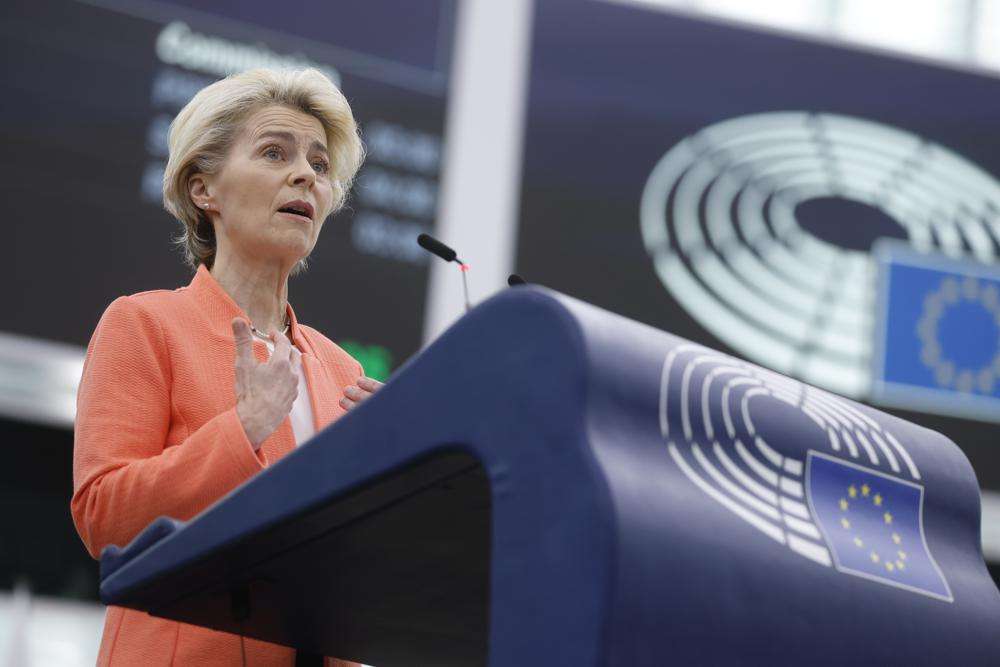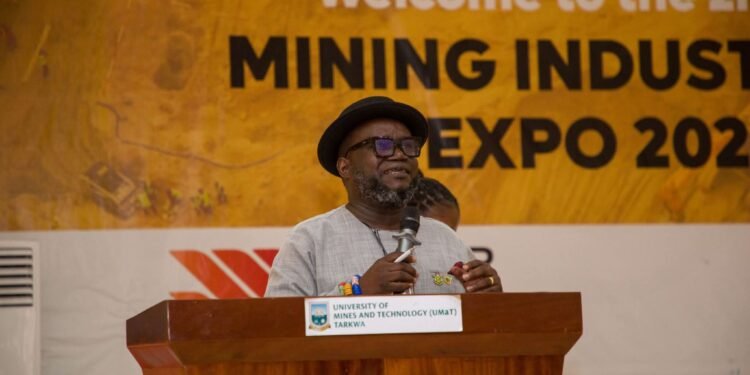European Commission President, Ursula von der Leyen has disclosed that the EU would disburse a 6 billion euros ($7 billion) loan to Ukraine.
Speaking at the European Parliament, she promised more money for Kyiv, saying, “We will cover the financial needs of Ukraine for the next two years.”
The EU and other foreign partners have poured money into Ukraine’s energy sector. Russia has relentlessly bombarded the power grid, which requires repeated repairs.
The EU is looking into how it can come up with more money for Ukraine, either by seizing frozen Russian assets, raising funds on capital markets, or having some of the 27 EU nations raise the money themselves
Ursula von der Leyen unveiled three distinct options for supporting Ukraine’s war effort.

In her speech to the European Parliament, von der Leyen said that Ukraine’s imminent budget shortfall, which is estimated to total $65 billion in 2026 and 2027, could be funded by EU countries raising money on capital markets using the EU’s long-term budget as headroom, or by individual capitals raising cash themselves through an “intergovernmental agreement.”
However, she stressed that a third option, using Russian central bank assets held in Belgium that were frozen shortly after Moscow’s full-scale invasion in February 2022, remains “the most effective way to sustain Ukraine’s defence and its economy.”
The European Commission Chief reiterated her preference for using immobilised Russian sovereign assets to fund Kyiv despite staunch Belgian resistance.
She stressed that the so-called reparations loan is “the clearest way to make Russia understand that time is not on its side.” “We will show that, if needed, we are in this for the long haul,” she added.
She noted that Russian President Vladimir Putin “thinks he can outlast us” in the battle over Ukraine’s future, nearly four years after Russia’s all-out invasion of its neighbor. “And this is a clear miscalculation,” von der Leyen said.
“Now is therefore the moment to come, with a new impetus, to unlock Putin’s cynical attempt to buy time and bring him to the negotiation table.”
Ursula von der Leyen
Announced by von der Leyen in her flagship annual State of the Union speech in September, the reparation loan aims to harness €140 billion in cash balances associated with Russian sovereign assets held by Euroclear, a Brussels-based clearinghouse.
The loan is strongly supported by Germany, France, and many eastern EU countries, which argue that it is a critical means of supporting Ukraine at a time of stretched national budgets. However, it is fiercely resisted by Belgium, which fears retaliation by Moscow and potential damage to Euroclear’s reputation if the scheme goes ahead.
Belgian Prime Minister, Bart De Wever has refused to back the loan unless financial and legal risks associated with the plan are shared across the bloc, and other EU member states pledge to use Russian sovereign assets held in their own jurisdictions to support Ukraine.
He also refused to approve the loan plan at last month’s European Council, where EU leaders ultimately tasked the Commission with developing distinct “options” to support Ukraine that do not necessarily draw on Russian assets.
Since last month’s summit, however, von der Leyen has repeatedly refused even to mention the possibility that Kyiv’s funding gap could be financed by alternative means – although she has admitted that “technical questions” must be answered to assuage Belgium’s concerns.
EU Finance Ministers Meet To Discuss Options For Supporting Ukraine
Von der Leyen’s remarks came as EU Finance Ministers met in Brussels to discuss the options for supporting Ukraine.
Danish Minister for Economic Affairs Stephanie Lose, whose country currently holds the rotating EU presidency, stated, “To be honest, to me, it still looks like the best way forward would be the reparations loan.”
Lose added that it is only “natural” for ministers to discuss “options and … the difficulties connected to any of those options.” “We’re talking [about] a lot of money,” she said, adding, “I’m always optimistic that we will be able to find solutions in Europe.”
READ ALSO: S&P Global Expects the 2026 Budget to Strengthen Fiscal Improvements





















